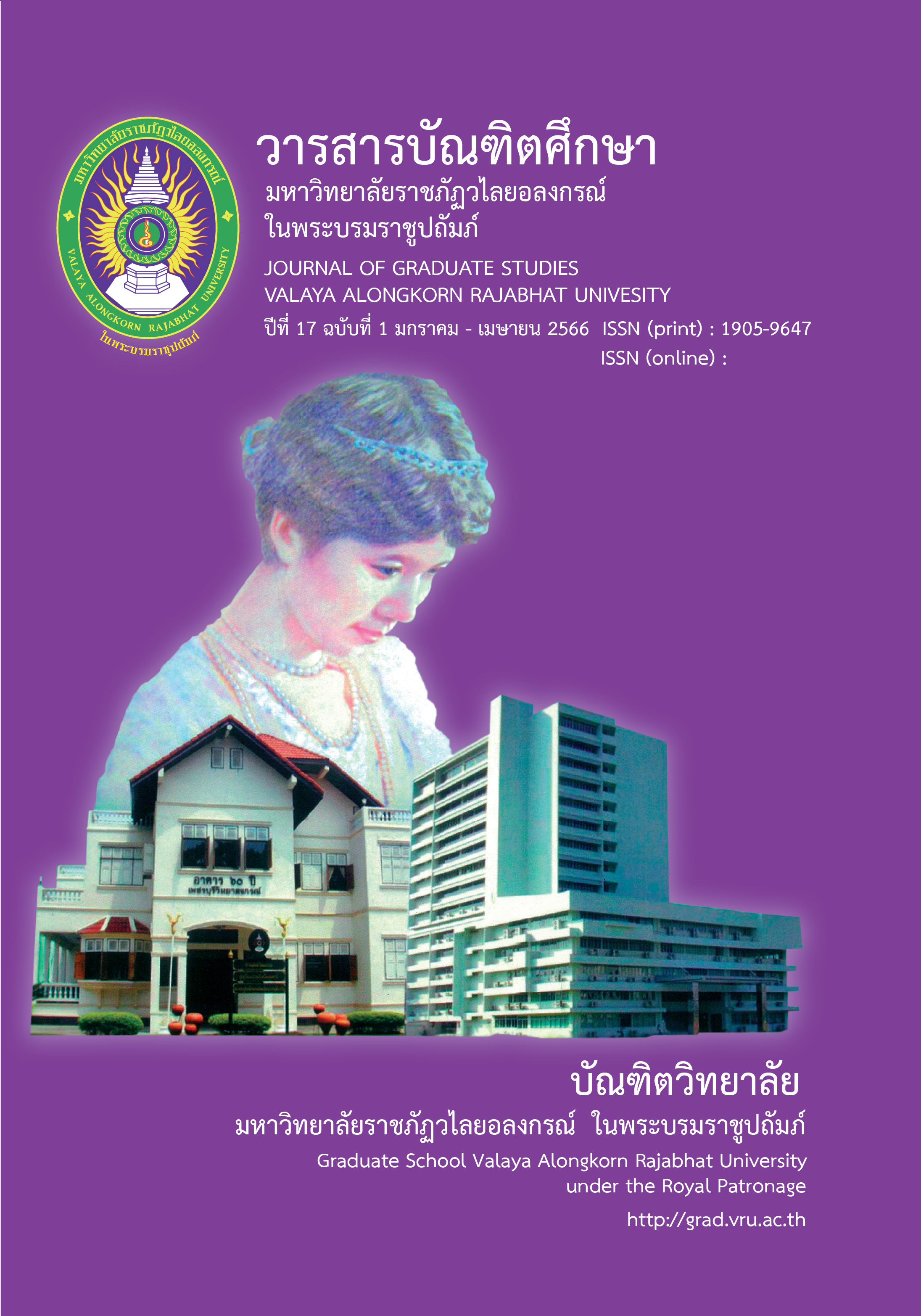THE DEVELOPMENT OF PRE-SERVICE SCIENCE TEACHERS’ LEARNING MANAGEMENT COMPETENCY THROUGH VIDEO-REFLECTION
Main Article Content
Abstract
This mixed method research aims to study and develop 27 pre-service science teachers’ learning management competency who enrolled in science methods course in second semester of academic year 2019. The in-depth case studies were employed and incorporated with the following-up 4 cases of pre-service science teachers. The data was collected through learning management competency evaluation form, lesson plans, video reflections form, semi-structured interviews, and related documents. The inductive process was used to analyze in conjunction with computing statistics including percentage.
The findings showed that pre-service science teachers had various understanding of learning management in science. Through learning management in the course, most teachers, however, were categorized in good level of learning management competency in subcomponent of science curriculum, lesson planning and science learning management strategy. They were at moderate level in orientation to teaching science whereas assessment in science with fair level.
Article Details

This work is licensed under a Creative Commons Attribution-NonCommercial-NoDerivatives 4.0 International License.
บทความทุกเรื่องได้รับการตรวจความถูกต้องทางวิชาการโดยผู้ทรงคุณวุฒิ ทรรศนะและข้อคิดเห็นในบทความ Journal of Global of Perspectives in Humanities and Social Sciences (J-GPHSS) มิใช่เป็นทรรศนะและความคิดของผู้จัดทำจึงมิใช่ความรับผิดชอบของบัณฑิตวิทยาลัย มหาวิทยาลัยราชภัฏวไลยอลงกรณ์ ในพระบรมราชูปถัมภ์ กองบรรณาธิการไม่สงวนสิทธิ์การคัดลอก แต่ให้อ้างอิงแหล่งที่มา
References
Abell, S. K., Appleton, K. and Hanuscin, D. (2010). Designing and teaching the elementary science methods course. New York: Routledge.
American Association for the Advancement of Science. (1993). Science for all Americans. Retrieved from http://www.project2061.org/publications/sfaa/online/sfaatoc.htm
Chaichaowarat, R. (2017). samatthana dān kānʻō̜kbǣp kān rīan kānsō̜n khō̜ng naksưksā khrū thī khaorūam pen samāchik chumchon kānrīanrū thāng wichāchīp [Competency in designing the instruction of student teachers who become professional learning community (PLC) members]. Journal of education studies. 45(4), 143-164.
Clara, M. (2014). What is reflection? Looking for clarity in an ambiguous notion. Journal of Teacher Education, 66(3), 261–271.
Creswell, J. W. (2013). Research Design: Qualitative, Quantitative, and Mixed Methods Approaches. 2nd ed. Thousand Oaks, CA: Sage publications.
Faikhamta, C., Ketsing, J., Tanak, A. & Chamrat, S. (2018). Science teacher education in Thailand: a challenging journey. Asia-Pacific Science Education. 4(3), 1-18.
Hamontri, N. (2015). kānnam sanœ̄ nǣothāng kānphatthanā samatthana khō̜ng khrū sangkat samnakngān khēt phư̄nthī kānsưksā prathom sưksā Phra Nakhō̜n Sī ʻAyutthayā khēt nưng [Guidelines on the competence development of teachers under Phranakorn Si Ayutthaya Primary Educational Service Area Office 1]. VRU Research and Development Journal Humanities and Social Science. 10(2), 177-185.
Holbrook, J., and Rannikmae, M. (2009). The meaning of scientific literacy. International Journal of Environmental & Science Education. 4(3), 275-288.
Júnior and Fernandez. (2013). Following early career chemistry teachers: the development of pedagogical content knowledge from pre-service to a professional teacher. Problems of education in the 21st century. 55, 57-73.
Loucks-Horsley, S. et al. (2003). Designing professional development for teachers of science and mathematics. 2nd ed. California: Corwin Press.
McCullagh, J. F. (2012). How can video supported reflection enhance teachers’ professional development? Cultural Studies of Science Education. 7(1), 137-152. Retrieved from https://doi.org/10.1007/s11422-012-9396-0
Magnusson, S., Krajcik, J. and Borko, H. (1999). Nature, sources and development of pedagogical content knowledge for science teaching. In J. Gess-Newsome and McDermott, L. C., and the Physics Education Group. 1996. Physics by inquiry. New York: John Wiley & Sons.
Office of the Education Council. (2018). samatthana kānsưksā khō̜ng prathēt Thai nai wēthī sākon (Phō̜.Sō̜. 2561) [IMD world competitiveness yearbook 2018]. Retrieved from http://backoffice.onec.go.th/uploaded2/Outstand/201806/IMD2018.pdf
O’Flaherty, J. & Beal, E. M. (2018). Core competencies and high leverage practices of the beginning teacher: A synthesis of the literature. Journal of Education for Teaching. 44(4), 461–478. Retrieved from https://doi.org.10.1080/02607476.2018.1450826
Steeg, S. (2016). A Case Study of Teacher Reflection: Examining Teacher Participation in a Video-based Professional Learning Community. Journal of Language and Literacy Education. 12(1), 122-141.
Veal, W., Tippins, D. J. and Bell, J. (1998). The evolution of pedagogical content knowledge in prospective secondary physics teachers. Presented at The National American Research in Science Teaching conference. San Diego, California, USA. Retrieved from https://files.eric.ed.gov/fulltext/ED443719.pdf
Wannasri, J. (2009). khunnaphāp kānsưksā kap samatthana khō̜ng khrū thī phưng prasong [Educational quality and desirable teacher competency]. Journal of Education Khon Kaen University. 32(1), 1-5.


